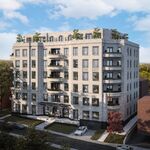Eug
Senior Member
I don't know about other cities, but I do know that Vancouver had a similarly huge price peak around that time. Why do I know this? Because a friend's family bought around that time, and then they lost several hundred thousand dollars in equity in their home in just a few years. (They bought a luxury home in Shaunessey.)
---
BTW, if we're to accept that Toronto trend curve as reasonably accurate (for Toronto), which is to say that home prices have outpaced inflation over the last 15 years (but not over the last 20 years), then that would suggest that 2009 prices are probably around 10% too high, compared to that trend curve.
So normalization of prices to the trend curve means 10% drop in prices in real inflation-adjusted dollars. There are a number of ways this could happen.
1) Prices could flat-line for many years. With the economy improving, inflation would increase, and after a few years, inflation would catch up. This is the "soft landing" some predict. This is also the easiest for people to swallow. ie. If someone buys a house for $400000 and after 4 years it's still $400000 (but in 2014 dollars), the real inflation adjusted price has dropped, but I suspect most non-investors wouldn't actually care that much because they're living there anyway.
2) Prices could drop 10% or perhaps a bit more (as I had been predicting) over a couple of years so that prices were actually slightly under that trend curve. This would annoy a lot of people, but wouldn't necessarily be unhealthy.
3) Prices could drop much more, perhaps 20% or more. This would far overshoot that trend curve.
IMO, Flaherty is probably aiming for something between #1 and #2. It would be enough to annoy some people but would be enough to control the market while talking tough without decimating the market.
My gut feeling (without data to back that up) is that adopting a 7.5% minimum down payment policy, perhaps with a maximum 30-year amortization period could achieve this, without having to resort to significantly increased interest rates which would cause problems for the rest of the economy. Then, later as interest rates slowly increase in the future, price increases can be further moderated compared to inflation.
---
BTW, if we're to accept that Toronto trend curve as reasonably accurate (for Toronto), which is to say that home prices have outpaced inflation over the last 15 years (but not over the last 20 years), then that would suggest that 2009 prices are probably around 10% too high, compared to that trend curve.
So normalization of prices to the trend curve means 10% drop in prices in real inflation-adjusted dollars. There are a number of ways this could happen.
1) Prices could flat-line for many years. With the economy improving, inflation would increase, and after a few years, inflation would catch up. This is the "soft landing" some predict. This is also the easiest for people to swallow. ie. If someone buys a house for $400000 and after 4 years it's still $400000 (but in 2014 dollars), the real inflation adjusted price has dropped, but I suspect most non-investors wouldn't actually care that much because they're living there anyway.
2) Prices could drop 10% or perhaps a bit more (as I had been predicting) over a couple of years so that prices were actually slightly under that trend curve. This would annoy a lot of people, but wouldn't necessarily be unhealthy.
3) Prices could drop much more, perhaps 20% or more. This would far overshoot that trend curve.
IMO, Flaherty is probably aiming for something between #1 and #2. It would be enough to annoy some people but would be enough to control the market while talking tough without decimating the market.
My gut feeling (without data to back that up) is that adopting a 7.5% minimum down payment policy, perhaps with a maximum 30-year amortization period could achieve this, without having to resort to significantly increased interest rates which would cause problems for the rest of the economy. Then, later as interest rates slowly increase in the future, price increases can be further moderated compared to inflation.
Last edited:




